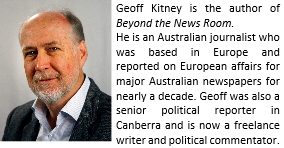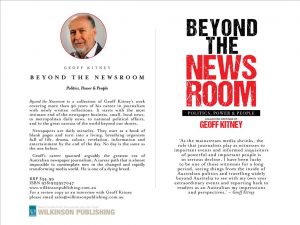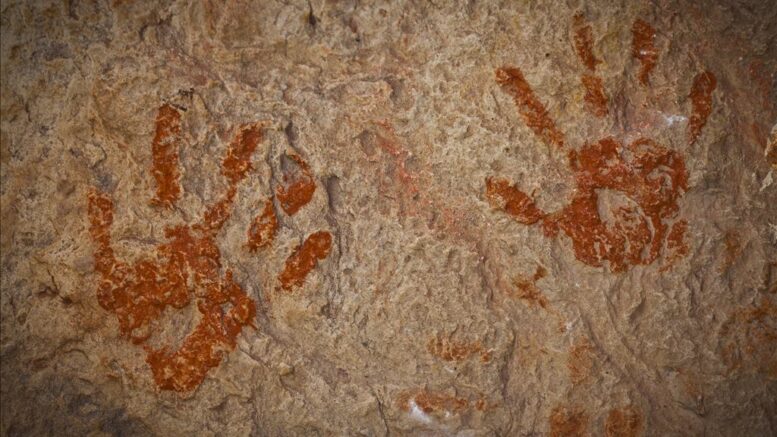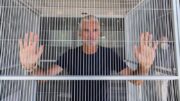A referendum will take place next week on whether or not to give Aboriginal and Torres Strait Islanders a formal place in their Constitution, more than 200 years after Britain’s ‘First Fleet’ stepped foot on the continent. Geoff Kitney explains why it is unlikely to succeed.
When UK Home Secretary Suella Braverman delivered her anti-refugee speech to the United Nations a few days ago, many Australians would have had an inkling about who she had been talking to.
Attacking the United Nations Refugee Convention and calling for it to be scrapped has been a cause campaigned for by Australian conservatives for years. One of its most ardent critics is former Australian Prime Minister Tony Abbott. In 2013 his policy to “Stop the Boats” flouted international refugee conventions by turning away refugees in small boats.
Abbott these days spends a lot of his time in London wandering the corridors of Government and in earnest conversation with senior members of the Conservative Party about issues such as border security and “illegal” boat arrivals. The Financial Times recently reported that Abbott had become “a guru” to the right wing of the Conservative Party.
Abbott was Australian Prime Minister between 2013 and 2015 before he was dumped by his own party amid dismal opinion polls and the prospect of a wipe-out at the next election. But his rejection by his fellow Australians has not deterred others outside Australia from seeking his “wise counsel” on issues dear to the hearts of hard-line conservatives.
So influential has Abbott become that last month he was appointed to the board of Rupert Murdoch’s Fox International – part of the global media platform that Murdoch has mobilised to promote right-wing conservative news and opinion agendas. It is through this platform that UK Brexit believers, Donald Trump’s Make America Great Again movement and Abbott’s hard-right successors in Australia campaign against anything they designate as “woke”, a word adopted from the US right wing to attack what they see as progressive ideas by those they brand as belonging to arrogant “elites”.
Abbott has a busy international schedule of engagements these days but recently he has been spending quite a lot of time at home, devoting his energies to fighting against a cause that Australia’s right wing has mobilised to defeat – a referendum to amend the Australian Constitution to formally acknowledge indigenous prior ownership of Australia. Australia is the only former British colony not to have formally given constitutional recognition to the indigenous populations that were present when settled by colonial powers.
The Australian Labor government – elected in 2022 after a decade of conservative rule – promised upon taking office to act on a request from Aboriginal leaders to be granted constitutional recognition and receive a “Voice to Parliament”. The request was made in what is now known as the Uluru Declaration, drafted by Aboriginal leaders in the form of a “Statement from the Heart”.
Labor’s promise will be honoured at a national referendum on October 14. Initial public support for the proposal was strong. Polls indicated a clear majority in favour in all Australian states.
This mattered because, under the Australian Constitution, for a referendum to pass it must attain a majority of voters in a majority of states and territories as well as a majority of voters in at least four out of six states.
Over the decades, this has proven to be a big ask. Of 44 such referendums voted on since federation in 1901 just eight have passed. Only with bipartisan political support do such votes have a chance of succeeding.
So, while it initially seemed there was sufficient public support for The Voice Referendum, the outcome in the end would depend on it maintaining bipartisan political support.
All expectations changed in April this year when the conservative Opposition announced it would actively campaign against it.
The Opposition, the Liberal-National Party Coalition, launched a campaign against the referendum under the slogan “If you don’t know, vote No”
It’s leader (a successor of Abbott) Peter Dutton said that his party’s decision to vote No to the referendum was taken because the government had failed to make a case for the Voice.
He argued that there was insufficient detail on how The Voice would work and that Australians could not be expected to take the risk of voting for a proposal which was too vague.
The Opposition, the Liberal-National Party Coalition, launched a campaign against the referendum under the slogan “If you don’t know, vote No”.
Importantly, the Opposition’s stand was endorsed by the Murdoch media, the dominant force in Australian print media and with deeper reach through Murdoch’s Sky News TV channel. With the support of two high-profile conservative Aboriginal figures, opponents to the referendum quickly changed tack, almost instantaneously, forcing support for the Yes vote to crumble.
Within weeks, a full scale “culture war” had erupted.
Over the months since then, the referendum campaign has descended into a bitterly divisive national controversy, with the No campaign joined by an extraordinary – and in some cases bizarre – collection of referendum opponents.
Rallying these forces has been Tony Abbott, who has taken a high-profile role in the No campaign and been followed into the campaign by international right-wing opponents of “wokeism”.
The escalation of the Referendum campaign into a political free-for-all has unleashed some truly ugly forces, particularly on social media platforms but also in the mainstream media. Vicious racism, scare campaigns based on misrepresentations and lies and a parade of extremists, including anti-vaxxers and neo-Nazis, have been emboldened to say pretty much anything.
At the same time, some of Australia’s wealthiest individuals – such as mining magnate Gina Rinehart and billionaire Clive Palmer – have backed and funded the No campaign. Australia’s Christian conservative movement, with funding connections to the Trump-supporting US Pentecostal movement, have rallied against the Referendum. US free enterprise think tank, the Atlas Network, is reported to be giving financial support to the No campaign. Even a pro-Putin Russian émigré, who lives in the Russian Consulate in Sydney, has been a lead organiser of rallies against the Referendum.
Former long-serving Prime Minister John Howard – a mentor to Tony Abbott – has lent his support to the No campaign and attacked arguments by the Yes campaign that the proposed Constitutional change is necessary to right more than two centuries of suffering and disadvantage that colonialism has inflicted on Aboriginal people.
Abbott, like Howard, a deeply committed Anglophile argues that the legacy of British colonisation has been overwhelmingly positive for all Australians.
Howard has branded commentary which blames Aboriginal suffering on the impacts of colonisation as “a black arm-band” view of history.
Both back warnings that the referendum will introduce race into the Australian Constitution, a claim that has seen No campaigners warn that, in effect, the amendment to the Constitution would amount to “Australian apartheid”, by enshrining race-based rights for indigenous Australians.
The Yes campaign counters that Aboriginal people are not a separate race but are the true indigenous people of Australia who, after two centuries of white settlement and as a voiceless minority (just 3 per cent or the total population) suffer rates of morbidity, incarceration, poverty and poor education, far higher than the rest of the population.
They say that nothing has worked to close the gap between indigenous people and the rest of the population and that a constitution-based right to a voice – in effect an advisory committee of elected Aboriginal people – offers hope of developing policies to deal with indigenous disadvantage and disempowerment.
The gulf between the two sides has widened dramatically since the referendum campaign began.
What the Labor government proposed as a means of bringing the nation together on the issue of Aboriginal disadvantage has instead deeply divided the country.
It has raised troubling questions, too.
Does this prove that Australia continues to be a racist country, decades after the end of the White Australia policy? Between 1901 and 1966 Australian immigration law expressly aimed to prevent non-White races from being allowed to migrate to and settle in Australia.
Certainly, a lot of the commentary on The Voice referendum has been blatantly racist, particularly on social media.
Some fear defeat of the voice will damage Australia’s international standing.
But behind the No campaign may be a deep reflection of the national character.
The referendum campaign has descended into a bitterly divisive national controversy, with the No campaign joined by an extraordinary – and in some cases bizarre – collection of referendum opponents
Australia is essentially a conservative country. Fear of change runs deep.
Australians are also historically suspicious of politicians advocating major change, just as they are nervous about national security, fear engendered by the country’s geography as a white, relatively small and fundamentally European population, next door to Asian nations with huge populations.
This unease was, in part, behind the efforts of conservative governments to “Turn Back the Boats” in 2001 after the September 11 attacks on the US. Fear of the possibility of Islamic extremists infiltrating Australia on refugee boats was widespread.
Abbott – who ranks stopping the boats as his brief government’s greatest achievement and who was one of Brexit’s most vocal non-British supporters, continues to focus on the risk of uncontrolled immigration in western countries – recently appeared in Hungry to support Viktor Orban’s hard-line immigration policies, warning particularly about the number of “military age” young men entering Europe as refugees.
Regardless of its good intentions, the Referendum campaign has morphed into something much bigger than a simple matter of Aboriginal justice. It has become a magnet for right-wing forces emerging in the major western democracies wanting to expand the “culture wars” as widely as possible. They see the defeat of “wokeism” as essential to the cause of restoring conservative, right-wing values as the dominant force on the national political stage.
Caught up in this conflict, the hopes of indigenous Australians that their voice will finally be heard in the policy-making processes of government are being overwhelmed by an ugly, angry and disheartening bigger battle which cares little for their cause.
Headline image credit: Jason Benz Bennee/Shutterstock.com






